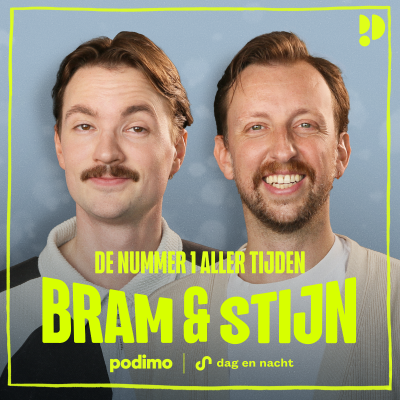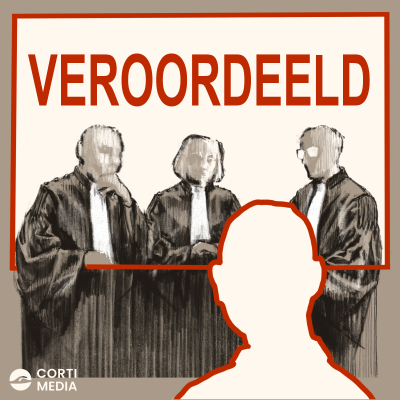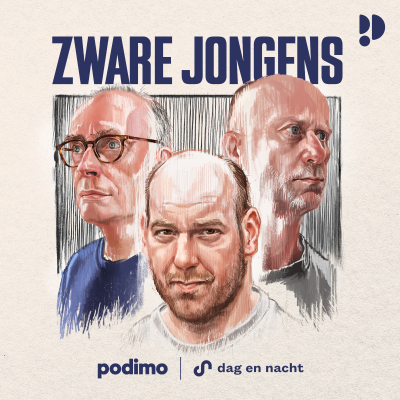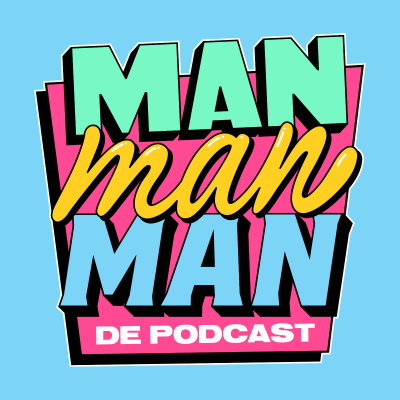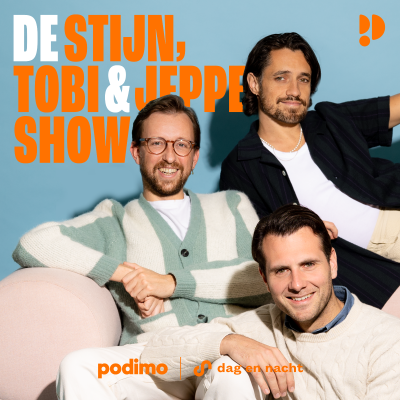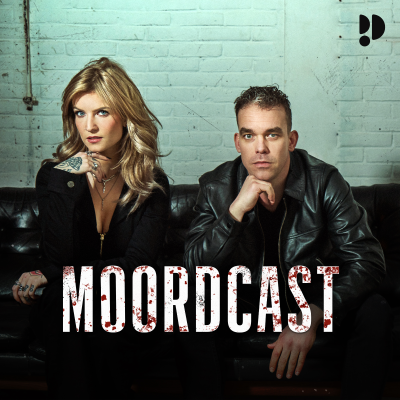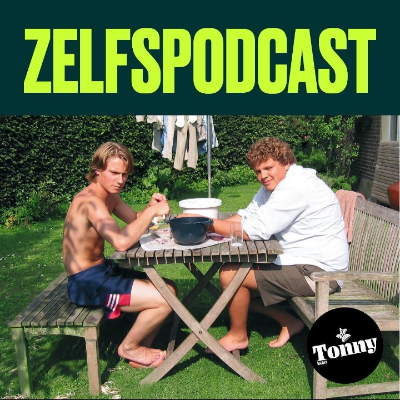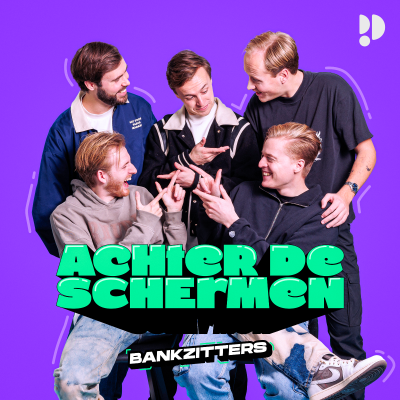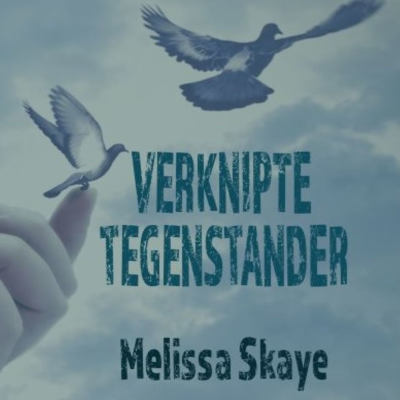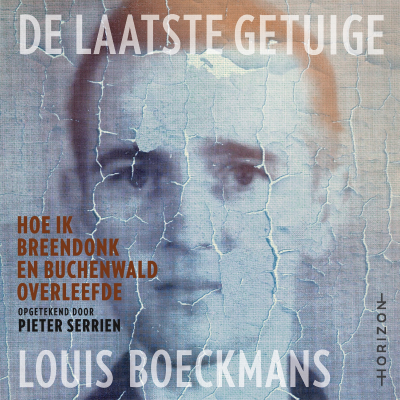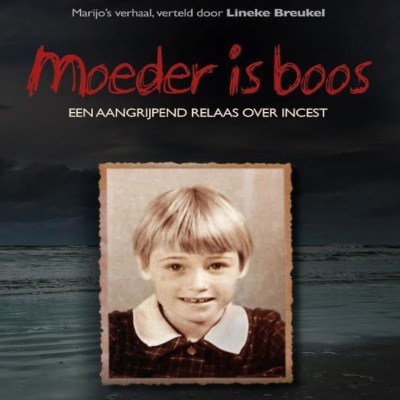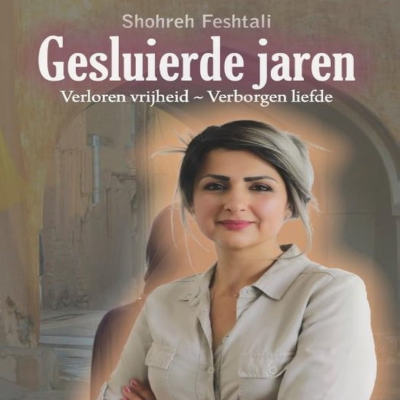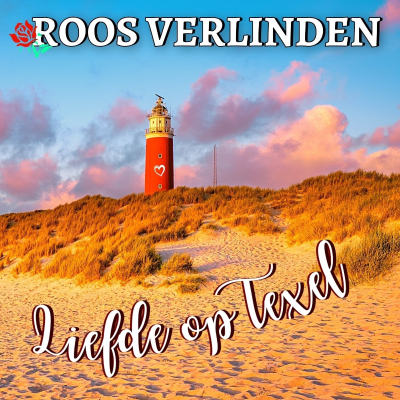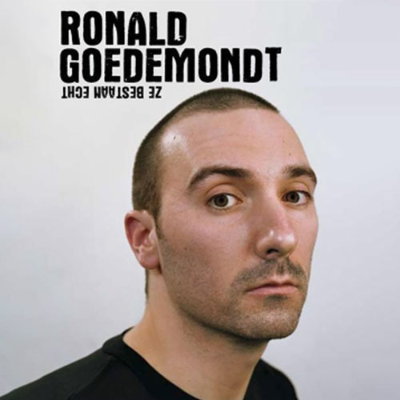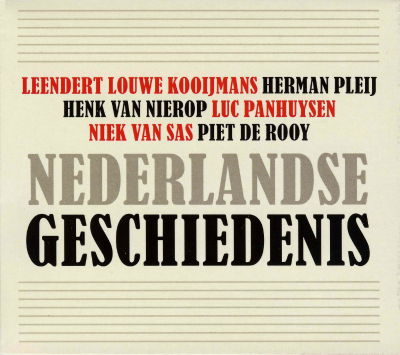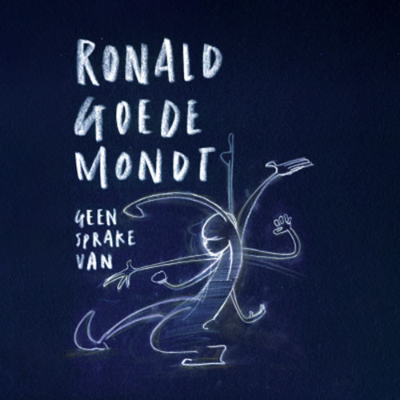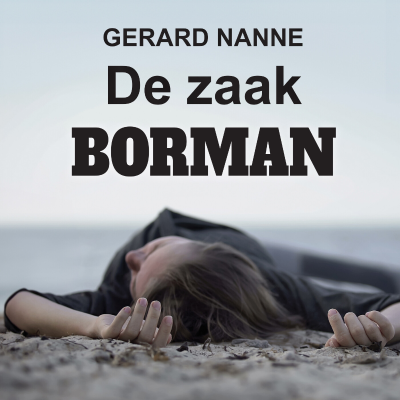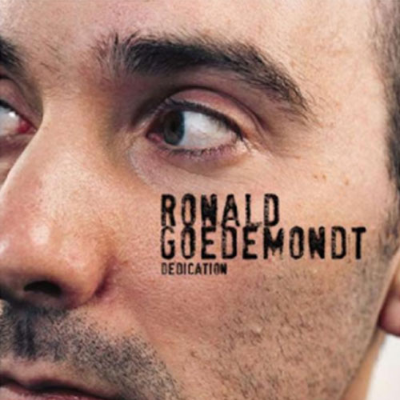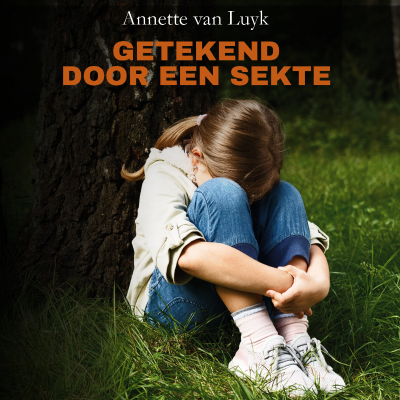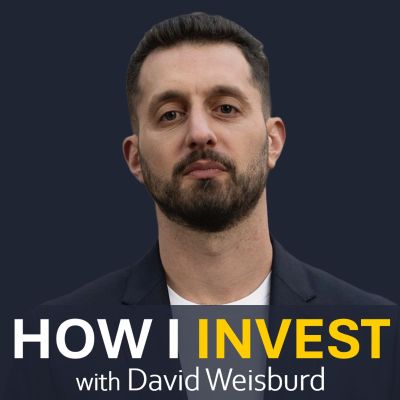
How I Invest with David Weisburd
Podcast door David Weisburd
Tijdelijke aanbieding
3 maanden voor € 1
Daarna € 9,99 / maandElk moment opzegbaar.
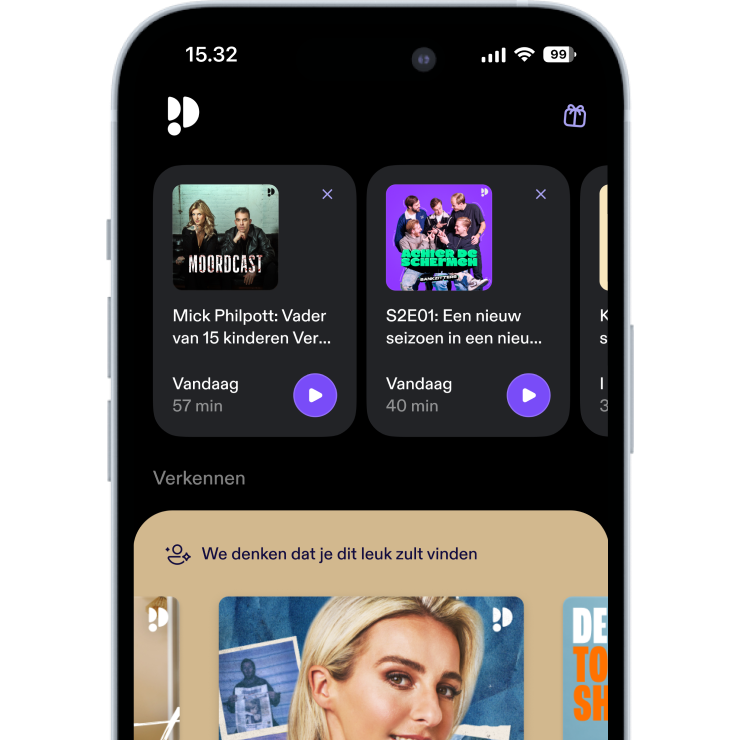
Meer dan 1 miljoen luisteraars
Je zult van Podimo houden en je bent niet de enige
Rated 4.7 in the App Store
Over How I Invest with David Weisburd
How I Invest with David Weisburd is a podcast that interviews the world's leading institutional investors. Previous guests include The Ford Foundation, Northwestern University Endowment, CalPERS, Stepstone, and other top limited partners.
Alle afleveringen
203 afleveringenThis episode features John Felix, General Partner & Head of Research at Pattern Ventures, a specialist fund-of-funds focused on backing small venture managers in the $5–50M range. We talk about the endowment principles that shaped John’s investing mindset, how to separate true specialists from résumé-driven narratives, why access and selection are two very different games, and the traps LPs face in co-investments. John also shares lessons on reserves strategy, portfolio construction, and what allocators consistently overlook when evaluating emerging managers. -- Highlights: * Why endowments that concentrate in their best ideas tend to outperform—and how that mindset translates to manager selection. * The real difference between a “specialist” and someone with just a strong pedigree. * Access vs. selection: most lose the game on access first, here’s how to filter for the best. * Crawl → walk → run: a stepwise framework for first-time GPs. * Solo GPs versus partnerships—where each model works and where risks emerge. * How to think about reserves and portfolio construction in small venture funds. * Spotting adverse selection in co-invest opportunities. * Why operator empathy makes for better underwriting judgment. -- Guest Bio: John Felix is General Partner & Head of Research at Pattern Ventures, where he leads manager selection and research. Pattern Ventures is a fund-of-funds focused on partnering with exceptional small venture funds ($5–50M) and offering co-investment opportunities. Previously, John led Emerging Managers at Allocate and was an investor at Bowdoin College’s Office of Investments under CIO Paula Volent, after earlier roles at an OCIO and Washington University’s Investment Management Company. He holds a BSBA from Washington University in St. Louis. Our Podcast now receives more than 300,000 downloads a month. Are you interested in sponsoring an episode? Please email David Weisburd at david@weisburdcapital.com [david@weisburdcapital.com]. #VentureCapital #VC #Startups #OpenLP #AssetManagement -- Stay Connected: X / Twitter: David Weisburd: @dweisburd LinkedIn: David Weisburd: https://www.linkedin.com/in/dweisburd/ [https://www.linkedin.com/in/dweisburd/] John Felix: https://www.linkedin.com/in/johnfelix12/ [https://www.linkedin.com/in/johnfelix12/] Links Pattern Ventures: https://www.patternventures.com/ [https://www.patternventures.com/] -- Questions or topics you want us to discuss on How I Invest? Email us at david@weisburdcapital.com [david@weisburdcapital.com]. (0:00) Early career and market efficiency insights (2:02) Scott Wilson as a CIO and manager evaluation process (7:45) Balancing portfolio management with best ideas strategy (17:14) Deep research and the transition to Bowdoin College (23:37) Bowdoin's investment philosophy and Allocate experience (29:03) Founding Pattern Ventures and avoiding LP error (34:32) Early venture investing challenges and strategies (39:00) Venture capital industry bifurcation and fund characteristics (44:05) Mistakes and reserve strategies in venture investing (47:21) Final thoughts and importance of LP-GP partnerships (48:27) Closing remarks
I had the chance to speak with Bradley Tusk, the legendary political strategist turned venture capitalist. He started in politics—running Michael Bloomberg’s mayoral campaign and serving as Deputy Governor of Illinois—before becoming the fixer behind startups like Uber, FanDuel, Lemonade, and Coinbase. Now, he runs Tusk Holdings, where he invests in—and fights for—startups navigating regulation. We talked about his unique investing playbook, how to outmaneuver entrenched interests, what founders misunderstand about politics, and why he’s betting $20 million of his own money on mobile voting. I had the chance to speak with Bradley Tusk, the legendary political strategist turned venture capitalist. He started in politics—running Michael Bloomberg’s mayoral campaign and serving as Deputy Governor of Illinois—before becoming the fixer behind startups like Uber, FanDuel, Lemonade, and Coinbase. Now, he runs Tusk Holdings, where he invests in—and fights for—startups navigating regulation. We talked about his unique investing playbook, how to outmaneuver entrenched interests, what founders misunderstand about politics, and why he’s betting $20 million of his own money on mobile voting. -- Highlights: * Why he believes every policy output is a political input * How he helped Uber win political battles across the U.S. * What makes politicians tick—and how to move them * Why crypto had a breakthrough 2024 election cycle * How Tusk Ventures invests in highly regulated industries * The origin story of the Mobile Voting Project * When startups should start lobbying—and how to do it effectively * The one investment he regrets (and what it taught him) -- Guest Bio: Bradley Tusk is the founder and CEO of Tusk Holdings, which includes Tusk Ventures, Tusk Strategies, and the Tusk Philanthropies foundation. He was formerly Deputy Governor of Illinois and campaign manager for Michael Bloomberg’s 2009 mayoral race. He helped Uber navigate early political battles, taking equity as payment—and then repeated that playbook with FanDuel, Lemonade, Coinbase, and others. He is also the author of The Fixer and Vote With Your Phone, and the founder of the Mobile Voting Project. Our Podcast now receives more than 300,000 downloads a month. Are you interested in sponsoring an episode? Please email David Weisburd at david@weisburdcapital.com [david@weisburdcapital.com]. #VentureCapital #VC #Startups #OpenLP #AssetManagement -- Stay Connected: X / Twitter: David Weisburd: @dweisburd LinkedIn: David Weisburd: https://www.linkedin.com/in/dweisburd/ [https://www.linkedin.com/in/dweisburd/] Bradley Tusk: https://www.linkedin.com/in/btusk/ [https://www.linkedin.com/in/btusk/] Links Tusk Holdings: https://www.tuskholdings.com/ [https://www.tuskholdings.com/] -- Questions or topics you want us to discuss on How I Invest? Email us at david@weisburdcapital.com [david@weisburdcapital.com]. (0:00) Introduction (0:44) Strategies for Uber's expansion and political challenges (6:26) Michael Bloomberg's approach and political ROI examples (10:35) Modern lobbying and startup political influence (19:52) Timing for startups to engage in lobbying (22:19) Success and impact of the crypto lobby in elections (25:14) Elon Musk's potential political influence (30:04) Bradley Tusk's mobile voting project and its impact (35:20) Tusk Ventures' investment approach and regulatory appeal (39:51) Perspectives on opposing lobbies and venture capital (42:06) Lessons from investing and politics (43:23) Closing remarks
What does it take to be a truly great limited partner? In this episode, I spoke with Matt Curtolo, a veteran LP who’s worked with some of the most sophisticated institutional investors in the world—Hamilton Lane, MetLife, and Hirtle Callaghan. Today, Matt advises both LPs and emerging GPs, offering a rare perspective from both sides of the table. We dug deep into what separates elite LPs from the pack, how institutional incentives shape decision-making, the paradox of humility and self-promotion among GPs, and why the best partnerships are built on trust, EQ, and long-term thinking. If you're raising a fund—or allocating to them—this episode is a masterclass. HIGHLIGHTS * Why emotional intelligence (EQ) often separates good LPs from elite ones * The biggest mistake LPs make: underestimating upside * How institutional misalignment discourages risk-taking * What best-in-class co-investment programs actually look like * How to assess GP conviction without asking directly * Why emerging GPs struggle—and how Matt coaches them through it * The real reasons LPs say no (hint: it’s not just returns) * Why “people first” is Matt’s ultimate investment filter * A framework for long-term games, trust-building, and kingmaking * What smaller LPs can do to punch above their weight GUEST BIO Matt Curtolo is an institutional investor, advisor, and coach with over 20 years of experience across some of the most respected LP organizations in the world. He spent the first seven years of his career at Hamilton Lane, followed by senior roles at Hirtle Callaghan and MetLife. Most recently, he was Head of Investments at Allocate. Today, Matt advises both LPs and GPs on investment strategy, manager selection, fundraising, and co-investments—with a special focus on helping emerging managers navigate the zero-to-one journey. Our Podcast now receives more than 300,000 downloads a month. Are you interested in sponsoring an episode? Please email David Weisburd at david@weisburdcapital.com [david@weisburdcapital.com]. #VentureCapital #VC #Startups #OpenLP #assetmanagement STAY CONNECTED X / Twitter: David Weisburd: @dweisburd LinkedIn: David Weisburd: https://www.linkedin.com/in/dweisburd/ [https://www.linkedin.com/in/dweisburd/] Matt Curtolo: https://www.linkedin.com/in/matt-curtolo-caia/ [https://www.linkedin.com/in/matt-curtolo-caia/] -- Questions or topics you want us to discuss on How I Invest? Email us at david@weisburdcapital.com [david@weisburdcapital.com]. (0:00) Episode preview (0:11) Experience at Hamilton Lane and early career insights (1:19) Skills and best practices for an elite limited partner (6:15) Leveraging community and referencing in due diligence (10:16) Decision-making, risk tolerance, and LP conservatism (17:16) Characteristics of top-performing LPs and institutional culture (22:03) Advantages and benefits of co-investing for large institutions (27:27) Evaluating co-investment opportunities and GP conviction (32:38) Building relationships with GPs and organizational differences (36:46) Challenges for smaller LPs and quick rejections in GP pitches (42:10) Partnership mentality and long-term industry relations (49:09) Consulting GPs and LPs for a unique perspective (53:09) Common reasons GPs fail to raise money and balancing self-promotion (59:13) The ten-year commitment test and characteristics of emerging LPs (1:03:38) Closing remarks
In this episode of How I Invest, I’m joined by Alex Hormozi — entrepreneur, investor, and founder of Acquisition.com — to unpack the mindset and methods that have fueled his success across multiple industries. We dive deep into why entrepreneurship is more a “game of the heart” than the mind, the power of compounding skills, the dangers of “ignorance debt,” and how to strategically decide whether to build skills yourself or bring in outside talent. Alex shares candid stories from his career — from building gyms to scaling software companies — and offers sharp insights on persistence, focus, and eliminating distractions to win long-term. We also explore the nuances of goal setting, why tiny incremental improvements matter when scaled to millions, and the art of building high-value peer networks. Whether you’re an aspiring founder, seasoned operator, or investor, you’ll walk away with concrete frameworks to increase your odds of success — and the conviction to keep playing the game long enough to win. -- Highlights: * Why persistence outperforms raw intelligence in entrepreneurship * The unseen advantage of being around excellence and winning teams * How to identify and reduce “ignorance debt” in your business * The compounding effect of stacking complementary skills over time * Why patience and focus are the hardest — yet most valuable — entrepreneurial skills * Building “luck surface area” and increasing your odds of success * Deciding when to build a skill versus bringing in outside expertise * Marginal gains at scale: why 2% improvements can move the needle massively * The ROI framework Alex uses to decide where to spend his time and resources * Strategic giving and networking: building IOUs that pay off years later -- Guest Bio: @AlexHormozi Hormozi is an entrepreneur, investor, and philanthropist. With his wife, @leilahormozi Hormozi, he co-founded Acquisition.com, investing in and scaling businesses while sharing their methods through books, podcasts, and media. He’s the author of $100M Offers and $100M Leads, with his new book $100M Money Models launching August 16, 2025. Our Podcast now receives more than 300,000 downloads a month. Are you interested in sponsoring an episode? Please email David Weisburd at david@weisburdcapital.com [david@weisburdcapital.com]. #VentureCapital #VC #Startups #OpenLP #assetmanagement -- Huge Announcement: Alex Hormozi's newest book, $100M Money Models, launches at a live virtual event Saturday August 16th. Register free: https://register.acq.com [https://register.acq.com] The book will teach you how to get more customers to spend more, in less time, over and over again, ultimately eliminating cash flow as a constraint to growth of any business. – Stay Connected: X / Twitter: David Weisburd: @dweisburd Alex Hormozi: @AlexHormozi LinkedIn: David Weisburd: https://www.linkedin.com/in/dweisburd/ [https://www.linkedin.com/in/dweisburd/] Alex Hormozi: https://www.linkedin.com/in/alexhormozi/ [https://www.linkedin.com/in/alexhormozi/] Links Acquisition.com: https://www.acquisition.com/ [https://www.acquisition.com/] -- Questions or topics you want us to discuss on How I Invest? Email us at david@weisburdcapital.com [david@weisburdcapital.com]. (0:00) Episode preview (1:00) Welcome back, Alex Hormozi and entrepreneurship insights (2:32) Underestimating time for success and skills around excellence (5:40) Learning from higher social status and power dynamics (9:46) Defining ignorance debt and the context of advice (17:27) Compounding skills versus mastering one (24:32) Luck surface area and restarting for cash flow (29:44) Focus as the hardest entrepreneurship aspect (31:17) Levels and characters in the entrepreneurial game (34:54) Tailoring advice to individual entrepreneurs (37:03) Changing behavior and soft skills in older employees (42:14) Preparing for book launch presentations (44:16) Sharing goals publicly and visualization techniques (50:32) Observable actions and career reflections (57:00) Investment regrets and doubling down on successes (1:00:19) Emotional investing challenges and building a mastermind (1:03:36) Networking strategies and bridging creator-investor worlds (1:06:26) Narrowing focus, expanding globally, and AI in deal flow (1:09:00) Transactional relationships and optimal give-to-take ratio (1:14:18) Content leverage and managing time (1:19:15) Initial behavior and relationship efficiency (1:22:21) Communication skills and meeting objectives (1:28:31) Anxiety, performance, and stylistic communication (1:33:25) Entertainment versus education in content creation (1:36:25) Influencing and effectiveness in content (1:39:41) Original content generation and value per word (1:45:45) Independent thinking for success and conviction in investments (1:49:30) Elon Musk's management strategies and leadership vision (1:59:43) High agency challenges and optimizing media production (2:03:51) Solving business constraints and the importance of talent (2:07:48) Closing remarks
Most people pitch performance. Rahul Moodgal built a career on pitching relationships. In this episode, I go deep with Rahul Moodgal—Head of Investor Relations at Parvus Asset Management and one of the most trusted capital raisers in the hedge fund world. Over his career, Rahul has raised $99 billion across platforms like TCI and Parvus, building decades-long relationships with LPs, endowments, and mission-driven institutions around the globe. We explore how Rahul flips traditional fundraising on its head: opening with the negatives, focusing on long-term alignment, and avoiding the sales-y traps that doom many GPs. If you're a manager trying to understand how world-class LPs think—or an allocator looking to work with truly values-aligned capital—this is the playbook. -- Highlights: * The Bear Stearns moment that changed everything: Rahul's unconventional pitch that led to 8 out of 12 investors committing capital. * Why most GPs focus on transactions instead of relationships—and why that's a mistake. * The difference between asset allocators and asset owners, and why Rahul focuses on the latter. * How mission-driven capital re-energizes his team and provides a deeper sense of purpose. * Why duration—long-term relationship building—is the ultimate differentiator in raising capital. * The secret behind his famous email list and why it's so hard to get on it. * Parvus’s contrarian investment style: buying when everyone else is selling and holding through the noise. * Building a 30+ member group of female CIOs to foster collaboration and support. * Why Rahul goes "analog" in a digital world and still flies thousands of miles for one meeting. * A clear-eyed framework for distinguishing between “jigsaw” vs. “treasure hunt” LPs. -- Guest Bio: Rahul Moodgal is Partner, Director of Investor Relations & Business Development at Parvus Asset Management, a London‑based firm specializing in European public equities with approximately $10 billion under management. With over 25 years of financial services experience, Rahul transitioned into asset management after a period in academia. He studied and taught across four countries—UK, USA, Russia, and Japan—and earned degrees from Keele University, the London School of Economics, and Cambridge University. Rahul was previously Partner leading Investor Relations & Business Development at The Children’s Investment Fund (TCI), where he became known for setting industry records—including initiating the largest-ever country and sector fund launches within a record timeframe. Following TCI, he advised and partnered with managers across Europe, contributing to firms such as Parvus, TCI New Horizon, KDA Capital, and Algebris Investments. Beyond finance, Rahul serves as a trustee, board chair, and patron for multiple non-profit organizations in both the UK and U.S., including British Exploring Society, the Sumerian Foundation, Whizz-Kidz, and Scientific Adventures for Girls in Oakland, California Our Podcast now receives more than 300,000 downloads a month. Are you interested in sponsoring an episode? Please email David Weisburd at david@weisburdcapital.com [david@weisburdcapital.com]. #VentureCapital #VC #Startups #OpenLP #assetmanagement -- Stay Connected: X / Twitter: David Weisburd: @dweisburd LinkedIn: David Weisburd: https://www.linkedin.com/in/dweisburd/ [https://www.linkedin.com/in/dweisburd/] Rahul Moodgal: https://www.linkedin.com/in/rahul-moodgal/ [https://www.linkedin.com/in/rahul-moodgal/] -- Questions or topics you want us to discuss on How I Invest? Email us at david@weisburdcapital.com [david@weisburdcapital.com]. (0:00) Episode preview (0:06) Raising $99 billion and Bear Stearns event story (1:46) Changing the pitch strategy and starting with negatives (5:01) Relationship building and quality of capital (10:14) Asset allocator challenges and choosing mission-driven clients (14:32) Role and feedback of LPs in influencing GPs (19:58) David Swensen, Yale model, and LPs pitching value (23:57) Organizational alignment and understanding LPs (27:12) Jigsaw vs. treasure hunt strategies and relationship duration (32:20) Reconciling relationship duration with check size (34:36) Mission-driven investing and non-performance alignment (41:15) Transparency and partnership in investment management (47:02) Long-term relationships versus transactional interactions (50:19) Building personal relationships in the investment world (57:01) Overview of Parvis Asset Management and contrarian strategy (1:02:16) Shorting stocks: Criteria and approach (1:03:48) Rahul Moodgal’s email list and meeting strategies (1:08:02) The value of in-person meetings and flying for deals (1:09:24) Closing remarks

Rated 4.7 in the App Store
Tijdelijke aanbieding
3 maanden voor € 1
Daarna € 9,99 / maandElk moment opzegbaar.
Exclusieve podcasts
Advertentievrij
Gratis podcasts
Luisterboeken
20 uur / maand
